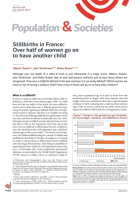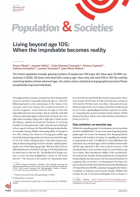
@@src2@@
Labour market uncertainties for the young workforce in France and Germany : implications for family formation and fertility
Collection : Documents de travail
n° 180, 2012, 58 pages
- Labour market uncertainties among Young people in France and West Germany
- Overall trends in Family formation and fertility in France and Germany
- Patterns of family formation and fertility among young people with flexible jobs, unemployment and other aspects of job insecurity
- Implications for family policies and welfare system regulations
- Implications of relevant social norms and values in society













